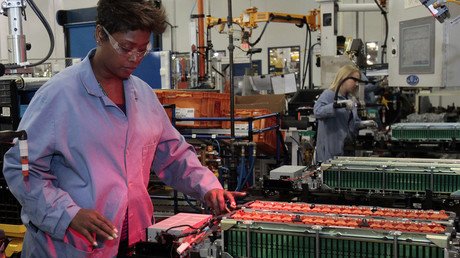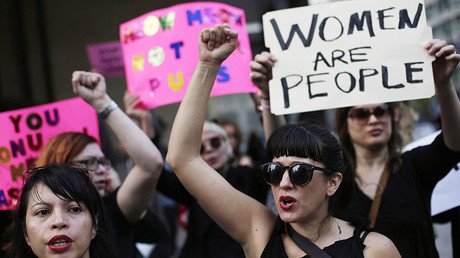Portland council votes to tax inflated CEO pay to combat homelessness

The city council of Portland, Oregon, has approved a unique new tax that targets public companies with a presence in the city and the pay those companies give to their chief executives compared to a worker's median salary.
By a three to one vote this week, Portland City Council decided to institute a tax on CEO pay of publicly traded companies that exceeds at least 100 times that of an average worker's salary. For a CEO-to-worker pay ratio of 100 to 1, the tax will be 10 percent of what the company owes the city in business taxes. If the ratio is 250 to 1 or greater, the company would owe a 25 percent surcharge.
The city believes the tax, which goes into effect in January 2018, would raise $2.5 million to $3.5 million per year. Federal data on CEO compensation from the Securities and Exchange Commission will guide the tax.
Commissioner Steve Novick, the sponsor of the plan, said he'd like the money to be used to address homelessness in the city. Last month, it was revealed that the number of public school students who are homeless across the state of Oregon has reached an all-time high.
"This is as close as I've ever (seen) to a tax on inequality itself," Novick said, according to the Oregonian.
Today, Portland, Oregon, became the first jurisdiction in the US to use the tax code to address outrageous CEO pay. https://t.co/YVW0r6CUjC
— Steve Novick (@NovickOR) December 8, 2016
Novick said he modeled the measure on similar legislation that was proposed in the California Senate in 2014.
"When I first read about the idea of applying a higher tax rate to companies with extreme ratios of CEO pay to typical worker pay, I thought it was a fascinating idea," Novick said.
Currently, companies with a presence in the city pay a tax of 2.2 percent of their net income. The city, the largest in the state of Oregon, has about 550 public traded companies, all of which would be subject to the CEO-pay tax once it goes into effect.
The measure was opposed by the Portland Business Alliance, which argued that the effort will not adequately address income inequality, and that the SEC data on which the tax will rely is an unreliable source of data.
"This is not something that can be dealt with at a local level," said Marion Haynes, the group's lobbyist and vice president for economic development, according to the Oregonian.
Thomas Piketty, a professor at the Paris School of Economics and author of 'Capital in the Twenty-First Century,' a study of modern income inequality, was another inspiration for the effort, Novick said. Piketty himself said he approved of Portland's tax while adding that it doesn't go far enough to address steep inequities between workers and bosses.
"This is certainly part of the solution, but the tax surcharge needs to be large enough; the threshold ‘100 times’ should be substantially lowered," Piketty told the New York Times.
In the last 35 years, the richest 1 percent of Americans have seen their market income increase 10 times more than the other 99 percent, according to June report by the Congressional Budget Office.
A recent Harvard University study found that, over the last six years, the number of Americans paying half their salary on rent has grown from 2.1 million to 11.4 million. Meanwhile, income growth for the wealthiest Americans continues to outpace that of the vast majority of the nation's workers.















